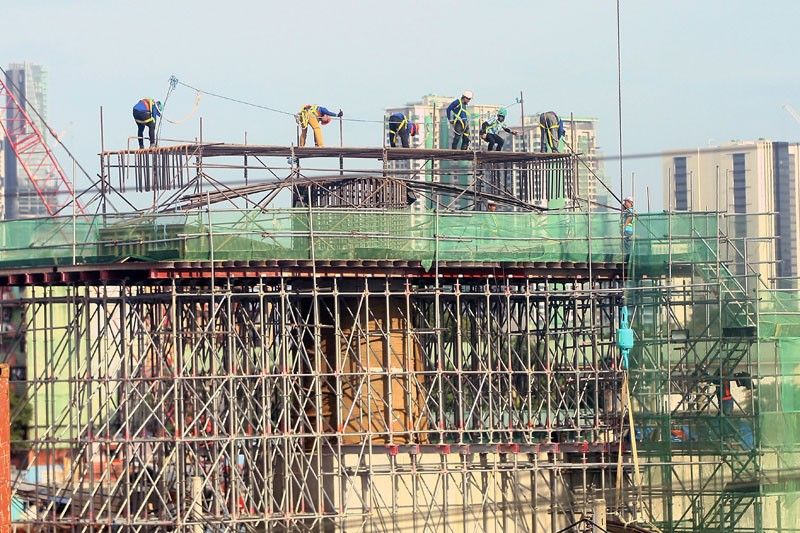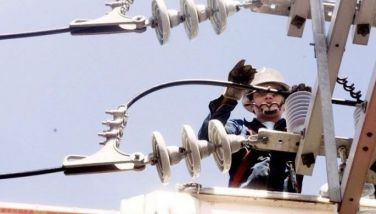Economic report card


There are so many numbers being floated around to paint a really upbeat image of our economy. Some of those numbers are good reasons to be hopeful, taken out of context. But the numbers that matter paint a slow growing economy.
If a report card can be fashioned out of data from Philippine Statistics Authority (PSA) and Bloomberg, the country’s leadership deserves a good spanking. That’s what we used to get from our parents after presenting a report card bleeding with red marks.
What are those red marks?
Start with GDP growth rate: from 6.3 percent in Q418 to 5.6 percent in Q119 to 5.5 percent in Q219.
Private consumption was 5.3 percent in Q418, 6.1 percent in Q119 and 5.6 percent in Q219. Government spending was 12.6 percent in Q418, 7.4 percent in Q119 and 6.9 percent in Q219.
Investment was 4.9 percent in Q418, 8 percent in Q119 and -8.5 percent in Q219. Fixed capital was 8.5 percent in Q418, 6.4 percent in Q119 and -4.8 percent in Q219.
Exports grew 14.4 percent in Q418, 5.7 percent in Q119 and 4.4 percent in Q219. Imports grew 12.4 percent in Q418, 8.6 percent in 1Q19 and 0 percent in 2Q19.
On the supply side, agriculture, fishery, forestry grew 1.8 percent in Q4, 0.7 percent in Q119 and 0.6 percent in Q219.
Industry sector grew 6.6 percent in Q418, 4.8 percent in Q119 and 3.7 percent in Q219.
In industry subsectors, mining and quarrying grew 8.1 percent in Q418, 4.7 percent in Q119 and 15 percent in Q219. Manufacturing grew 3.2 percent in Q418, 4.9 percent in Q119 and 4 percent in Q219.
Construction grew 20 percent in Q418, 5.4 percent in Q119 and -0.6 percent in Q219. Utilities grew 6.7 percent in Q418, 3.1 percent in Q119 and 7.5 percent in Q219.
Services sector grew 6.8 percent in Q418, 6.8 percent in Q119 and 7.1 percent in Q219.
Indeed, data from the PSA’s latest preliminary Monthly Integrated Survey of Selected Industries showed the volume of production index (VoPI) contracted by 8.1 percent YoY in July (vs. Jun 19: -10.5 percent; Jul 18: +10.1 percent).
YTD factory output decline averaged 9.9 percent versus the 13 percent growth in the first seven months of 2018. The VoPi for July was pulled down by 11 major industry groups led by petroleum (-75.8 percent) and furniture and fixtures (-24.8 percent).
Food manufacturing, which is the largest subsector in terms of contribution to factory output, grew 8.4 percent in July, snapping its 11th month of consecutive decline.
In an economic briefing by Jonathan Ravelas of BDO before executives of a leading conglomerate, he emphasized three musts to build the future of our economy: Build infrastructure, develop social capital and seize opportunities in agriculture, tourism and manufacturing.
While Ravelas was careful not to criticize the current manner by which Build Build Build is being rolled out, he emphasized the importance of getting the promised massive infrastructure building program of the Duterte administration into high gear.
As I have saying in this column, the Cabinet secretaries on top of building infrastructure has been covering up the deficiencies in implementation through rosy press releases. Readers can be misled that things are going well and on schedule.
It is obvious, too, that the big hope Duterte’s economic managers had on GAA and ODA funded infrastructure projects was misplaced. Three years after and they are yet to really break ground on one major infra project under BBB.
They said the contract signing for a $220 million loan in China during Duterte’s last Beijing visit would “jumpstart” the South Rail project to Bicol that China is supposed to fund.
Reading the story further reveals it is intended to fund the hiring of consultants who will prepare studies for the project. That sounds like groundbreaking will be at least a year away, possibly more.
This is why they shouldn’t have disrupted the momentum of infra projects in the PPP pipeline. Because the private sector proponents want to recover investments soonest, they have a strong incentive to deliver as quickly as possible. Bureaucrats thrive on delays.
Beyond the lack of absorptive capacity on the part of the bureaucracy to carry out big infra projects, there are real problems that only legislation can cure. In this regard, the economic team led by Sec Sonny Dominguez is to be commended for using political will to get reform measures passed by Congress.
There are a number in the key policy reform agenda that deserves quick attention. On top of the list are the remaining tax reform packages. Then, there are the amendments to the Public Service Act that open up key businesses like telecommunications to foreign investors and competition.
Other proposed bills that would improve the business climate and spur investments and national competitiveness include the Open Access to Data Transmission Act, Farm Entrepreneurship Act to ease CARP restrictions, Agri-Agra Act amendments, National Transportation Safety Board Act, National Transport Act to address traffic woes, National Land User Act, Bank Secrecy Law amendments and the Water Department Act.
Ravelas gave the following prescription:
Speed up infrastructure spending to sustain growth.
Speed up people’s technical skills to extend growth and opportunities. I have written too in this column about the need to future proof our workers by giving them the skills needed in the face of the digital technological revolution.
Address digitalization and opportunities. Invest in cyber-risk system.
Unfortunately, I have observed that the principal agency responsible for that, DICT, has dropped the ball. I heard that even on projects related to increasing competitiveness in the telco sector, the new DICT Secretary has ordered a moratorium to give him time to understand his job.
So, how can we expect Sec Gringo Honasan to even start to address cyber security risks, first with government specially with the National ID system. Then there are also cyber security risks in the private sector that are of national interest.
So much to do. So little time. And with appointees to key positions who do not seem up to the job, no wonder our economic report card is bleeding with red marks.
Again, the sad story of our lives… some key appointees got their jobs because of politics as usual!
Boo Chanco’s e-mail address is [email protected]. Follow him on Twitter @boochanco
- Latest
- Trending































